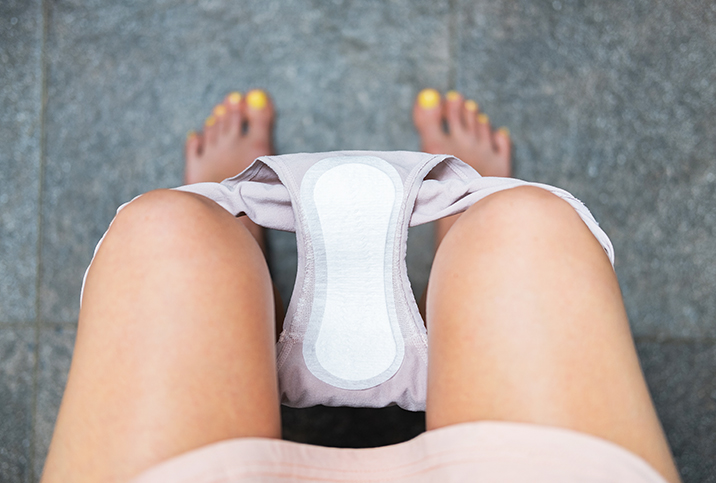When to Worry About Heavy Periods

At one point or another, every woman has experienced what they would describe as a heavy period. A heavy flow is quite common, especially in women over the age of 30; however, it may not always be normal. Painful, heavy and debilitating periods, known as menorrhagia, are never normal and are often linked to other health issues, such as anemia. Here's what you should look out for and how to know when it's time to call your gynecologist.
The 'gush'
It might come from a sneeze, getting up too quickly from a seated position or even entirely out of nowhere, but there is no mistaking the feeling of "the gush" on those heaviest of days. Why exactly does this happen? Is it normal to lose that much blood? In most cases, the answer to the latter question is yes, but you are not losing as much blood as you think you are during a regular period.
Period blood can collect in your uterus, causing a gushing sensation after any sudden movement. This collection of blood can also cause blood clots to form. The typical amount of menstrual fluid lost during a period is less than 3 ounces. However, experiencing a heavy period lasting more than seven days with any of the following symptoms is a cause for concern:
- Intense pain that inhibits your lifestyle
- Blood clots larger than a quarter
- The need to change pads or tampons more than once per hour
- Excessive drowsiness or inability to function normally throughout the day
These symptoms may be an indication of a hormonal imbalance or a more severe condition. New or sudden changes during your menstrual cycle should be discussed with your gynecologist.
Pain and bloating
A certain level of cramping and bloating is usually completely normal; unbearable pain, accompanied by heavy bleeding and bloating, is not. Since these symptoms can sometimes be life-threatening, you should not hesitate to call your doctor. Women experience pain and bloating for many reasons, including:
- Endometriosis
- Polycystic ovary syndrome (PCOS)
- Uterine fibroids
- Pelvic inflammatory disease (PID)
- Thyroid disease
- Miscarriage/false period
- Irritable bowel syndrome (IBS)
- Increase/decrease in sex hormones or other hormonal imbalance
- Poor diet and dehydration
- Cancer
Irregular cycles
Between 9 and 14 percent of women have irregular periods before reaching menopause, according to the American Academy of Family Physicians (AAFP). Irregular cycles accompanied by heavy periods can signify many disorders, such as PID or a hormonal imbalance. If you are experiencing irregular cycles, even without painful or heavy periods, it is essential to see your doctor to determine the cause. Irregular cycles can also signal infertility but are often treatable.
The 'C' word
Sudden changes to your period that include pain and heavy bleeding can be a sign of cancer. Fortunately, regular visits to your gynecologist and cancer screenings can help your doctor quickly rule this out. It is essential to see your doctor whenever something doesn't look or feel right. Your doctor can help you determine if you are at risk. Early detection is the key.
Don't be afraid to talk to your doctor
If you are not comfortable speaking to your doctor, get a new one. Do not suffer from painful, heavy periods. Symptoms can be easy to treat, but a condition can be life-threatening if ignored, so trust your gut—don't wait. If something doesn't seem normal, it probably isn't.


















